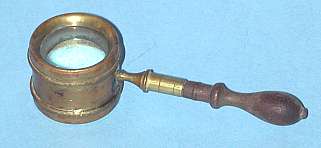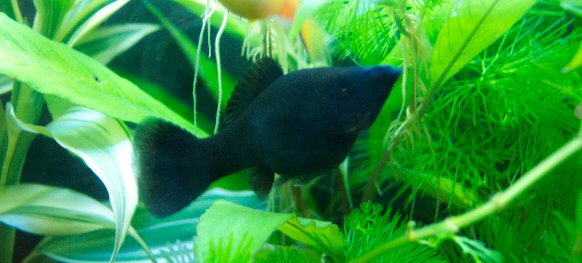Ordinarily, when we think of harpies we think of Aello, Ocypete, and Celaeno, or as she is sometimes known, Podarge, the three sisters of Greek myth, bird-women who kept stealing, and befouling, food from Phineus and were generally vicious, violent and cruel. Tennyson called them “These prodigies of myriad nakednesses, / And twisted shapes of lust, unspeakable, / Abominable, strangers at my hearth / Not welcome, harpies miring every dish” but that may be more a reflection of the poet's fevered mental state than of the destructive wind-spirits themselves.
It would certainly be a calumny upon the character of Beatrix Cambodge, the so-called Quayside Harpy who haunted the harbour of O'Houlihan's Wharf, that benighted, sludgesome seaside town a day's horse ride away from Haemoglobin Towers, if of course you point your horse due south, and if of course your horse is vimmy and fit, and not lame nor tubercular nor otherwise incapacitated. You might think it a simple matter to keep your horse healthy, but no! Our equine pals are subject to a host of terrible, terrible diseases! Lockjaw, Chronic Obstructive Pulmonary Disease, Equine Colic, Foal Pneumonia, Summer Seasonal Recurrent Dermatitis, and Equine Wobbler Syndrome are among the ones to look out for, next time you're hanging around at the stables, and there is a very helpful website with the admirably informative address www.horse-diseases.com to which you can refer. Don't forget to insert a hyphen between ‘horse’ and ‘diseases’, by the way, or you will go astray. As indeed, you will go astray if you point your healthy horse in any direction other than south when riding from Haemoglobin Towers to O'Houlihan's Wharf, in order to seek out Beatrix Cambodge, the Quayside Harpy, who of course I am meant to be talking about. Allow me just to prick the back of my hand with a long pin. That will help to concentrate my mind. I usually use a ladies' antique hatpin for what some think a melodramatic practice, but believe me, a tiny amount of bloodshed is well worth it to keep awake and alert when one might otherwise nod off into snoozeworld, particularly embarrassing when babbling into a microphone in the middle of a live radio show.
There. I can read and dab at the puncture in my hand with a disinfected rag at the same time, so let us move on. Beatrix Cambodge wanted to be a harpy from girlhood, after she read about the mythical bird-women in a little book entitled Harpies, And Other Things That Fluttered At The Rim Of Cooking Vessels In Ancient Greece, by Dax Blib, the notorious children's writer and historian who wrote from his cell in a big forbidding prison perched on a promontory, where he was incarcerated for life after causing a series of railway disasters. The book spurred the tiny girl's imagination, but it was not as if hers was a humdrum childhood. Both of her parents were vampires, albeit of a fairly nondescript variety. Not for them remote castles and sweeping black capes and glistening crystal decanters from which to pour the blood they drank. Mr and Mrs Cambodge were lowly sorts, reduced on occasion to squeezing the last drop of gore from a fly or bluebottle thwacked with a rolled-up periodical. Something of a wastrel, Beatrix's father tried to put it about that he was the eponymous fiend in Charles Ives' song “Slugging A Vampire” (1902), though this was clearly twaddle, his only - tenuous - connection with the composer being a brief tenure hawking pencils and pencil sharpeners on the ferry across the Housatonic at Stockbridge.
By the time Beatrix was born, the Cambodges had moved far, far from the Housatonic, fetching up in a village that was scarcely more than a clump of unsightly wooden sheds, a village so remote and dilapidated that it did not even have a name. There is a surprising number of employment opportunities in such a godforsaken spot for a wastrel and his wife who would shrivel to dust at the first ray of sunlight come the dawn, although I can't for the life of me think what they might be. I puzzled over this and akind friend suggested to me that perhaps the Cambodges made a living by creeping around at night laying traps for moles and badgers and weasels, so let us assume that that is what they did, and that farmers thereabouts paid them well for their exertions. That would at least explain how they came to be able to afford to send the young Beatrix to a finishing school somewhere in the Habsburg Empire where she first encountered the works of Dax Blib and set her heart on becoming a harpy.
She had wanted to be a bird. She learned that as the child of vampires, she could never, ever be transformed into a starling or a linnet or a nightjar or a nuthatch, not even into a bufflehead or a crow. It was a cruel lesson but she did not let it crush her spirit. Instead she spent hours with the finishing school seamstress, up in that weird cold crooked-beamed dusty stale attic, stitching and stitching, until she had fashioned for herself a pair of bright resplendent wings, with a span so wide when fully unfurled that the old seamstress gave a gasp and swooned, clattering to the floor more like a pile of dry sticks than a body of flesh and blood, and in her harpy heart Beatrix exulted at her power. She would have liked to fly away from the school by launching herself from the rooftops, but she was a sensible girl. She removed her wings and folded them up and stowed them in a tote bag and carried on with the day, through lessons in deportment and watercolour and piccolo and pastry finesse and recital of twee verses by Dax Blib, and only when the time came for the afternoon embroidery lesson did she flit away through a side door and off into the mountains, while the staff and pupils went scurrying in search of their seamstress, now stumbling stunned and blinded about the attic, bashing into mannequins and tearing her paper-taut skin on scattered needles and pins she could no longer see.
And Beatrix wandered in the mountains, stretching her taffeta and organdie wings, striking fear into cowherds and their cows. Stories of the flightless bird-woman circulated in the taverns. To assuage her wrath, offerings of food were left for her in huts and shelters and hermitages. Sometimes, reckless young pups armed themselves with their fathers' rifles and strode up into the foothills, trying not to choke on the tobacco pipes they clenched between their immature jaws, all bluster and braggadocio, hot for harpy hunting. Beatrix by now had perfected a shriek of such ferocity that the blood of those who heard it could have provided her vampire parents with plenty of ice popsicles. Experimenting on the cows and cowherds, she had learned that a few energetic flappings of her wings, accompanied by her shriek, could keep her safe from harm. Each and every gun-toting young fool who came in her pursuit returned to his village shrivelled and slobbering and deranged. Most of them had to be locked away in gloomy cellars, their families' shameful secret, quietly fed on slops for years and years, and never spoken of again.
Perhaps they were the lucky ones, for their village pals who eschewed the harpy hunt for one reason or another were soon to perish in the trenches, the Great War doing for them what it did for the Habsburg Empire in which they had grown. And it was at the end of that terrible conflict that Beatrix Cambodge at last came down from the mountains and made her way, vaguely and without any real purpose, across war torn lands until one bright day in 1921 she fetched up on the quayside at O'Houlihan's Wharf, and there she stayed.
Beatrix realised soon enough that she inspired not one whit of terror in the raddled and retired old sea dogs who haunted the quayside. These were ancient and crusty mariners who chewed fish-heads when they were not downing tankards of salt water and grog, and most of them had seen things far more terrifying than Beatrix in their years upon the high seas. Pegleg Pinsent, for example, over a hundred years old, with brine for blood, who now slumped collapsed and crapulent in a quayside kiosk, was thought to have seen so many ship-ghosts that he shook still, as he had been shaking for ninety years or more, ever since as a callow cabin boy he had clambered into the crows' nest of the HMS Corrugated Cardboard to be confronted with a sea-soaked ghoul which intoned a dreadful litany of incomprehensible maritime twaddle into his innocent ear. The ghoul was spindly, it pulsated like a jellyfish, it gave off an odour of barnacles and rot and death, and it loomed above the tiny boy, its boneless yet bony-seeming fingers clutching at his sleeve, leaving a trail of slime which no amount of soaking in pail after pail of borax and boiling water would ever expunge. At the end of that first voyage, the young Pinsent took the tunic home to his Ma, supposing her laundry skills equal to any and every stain, ghoul-smeared or otherwise, and that good woman let fall the shirt with a shriek, a shriek compared to which Beatrix's harpy howl was like the song of the nightingale she had, as an infant, wanted to be.
“Aye, young miss,” croaked Pegleg Pinsent as Beatrix sheltered in his kiosk during a rainstorm on her first day on the quayside, “I saw many a ship-ghost, and I saw ghost ships too. I saw shapes in the night sky that should not have been there, and heard wailings and screams emerging from the depths. And I smelled things no sailor ought ever smell, and touched what no sailor ought ever touch. And all o'that on my very first voyage, miss, nine years old and plying the foul oceans on the Corrugated Cardboard.”
“Now then, Mr Pinsent,” said Beatrix, balancing a dainty teacup on her lap, for harpy though she was she had not forgotten her Habsburg finishing school manners, “You have spoken of eldritch experiences involving four of the senses, but what of the fifth? Did you ever taste something no sailor ought ever taste, as you would put it?” As she posed this question, she unfurled one wing a little, just to see if it had any effect on the ancient mariner, whose beard seemed to be alive with tiny crawling forms of marine life not easy to identify. He did not pay her wing any attention as he replied.
“Hard tack biscuits riddled with worms, miss. That was my diet then as it is my diet now,” he said, “So the answer to your question has to be ‘no’, I suppose.”
“I see,” said Beatrix demurely, sweeping from her lap the crumbs of a cake she had bought at a neighbouring kiosk. As she did so, she flapped her one unfurled wing with a certain eerie menace, and prepared to display the second. Pegleg Pinsent took no notice, for he was lost and shaking in ghoul-reverie, occasionally slurping from a tin tumbler of rum, or brine, or rum and brine, he could not tell anymore.
The interview petered out. Polite Beatrix thanked the old sea dog for his time and shelter and mussed his filthy hair before striding out onto the quayside deep in thought. Clearly her harpydom had failed to discombobulate the grizzled marine person. It was true she had not essayed a shriek at him, but with his long experience of sea-shriekings she surmised that his composure would have remained unrattled.
Night fell on O'Houlihan's Wharf on that Wednesday. Under fat shimmering stars, Beatrix huddled down under a greasy green tarpaulin she found abandoned at a stretch of the quayside where auks and skuas gathered, far from the hectic tavern raucous with shanties. She took off her wings and folded them into her tote bag and placed it as a pillow, and lay down among birds, lulled to sleep by the waves lapping against the rotting and crooked timber of the jetty.
She dreamed harpy dreams. Ferocious and merciless and demented, she stole food from kings who had displeased their gods. Descending into the infernal regions, she sunk her savage talons into the bellies of suicides. She tormented unhappy sinners bound for Tartarus. She luxuriated in the filth and stench of her island nest. And when she woke on Thursday morning, the auks and skuas had flown away, and she was alone on the quayside, her wings packed in her pillow. She jumped into the sea and swam, elegantly, as she had been taught to do at finishing school, and then she climbed out and shook herself and preened, like a seabird on a rock, and she retrieved her tote bag and put on her wings, and shrieked and shrieked, and then she pottered off along the quayside towards a crumbling ruinous hut where a signboard promised breakfast, and she sat down at a rickety wooden table, its surface smeared with the slime of a ship's ghoul, surrounded by sea dogs in tatty unravelling sweaters stiff with wax, their rubber boots squelching and leaking, and she tucked in to a breakfast of cockles and mussels and herring and lobster and squid and boiled water from a tide pool, her cup alive with tiny wriggling marine beings, somehow happy at home here, far from her finishing school in the mountains of what once had been the Habsburg Empire, little Beatrix Cambodge, the quayside harpy of O'Houlihan's Wharf.






